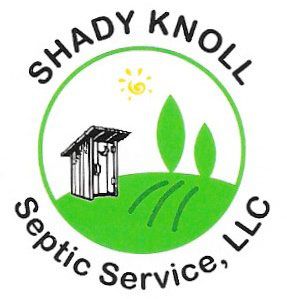FAQs
Shady Knoll Septic Service, LLC
How often should I have my septic tank pumped?
The frequency of septic tank pumping typically ranges from 3 to 5 years, depending on factors such as tank size and household occupancy. Consistent maintenance is essential to prevent costly repairs and system malfunctions.What are the signs that my septic system needs service?
Indications that your septic system requires service include sluggish drains, plumbing that produces gurgling noises, sewage odors around your property, water accumulation near the drain field, or sewage backing up into toilets or sinks.What's involved in a septic system installation?
Septic system installation encompasses several steps: evaluating the site, testing soil composition, designing the system, excavating the area, positioning the tank, installing the drain field, and concluding with a final inspection and permit acquisition.What should I avoid putting down the drain to protect my septic system?
To safeguard your septic system, refrain from introducing grease, oils, fats, corrosive chemicals, non-biodegradable items such as wipes or diapers, and excessive water from laundry or prolonged showers into your drains.How do I know what size septic tank I need?
The appropriate septic tank size is determined by the number of bedrooms in your residence and your daily water consumption. This information will be clearly indicated on the septic system permit.What is a drain field and how does it work?
A drain field consists of a series of perforated pipes that distribute treated wastewater into the surrounding soil. It serves a vital function in filtering and absorbing the effluent from the septic tank.Can heavy rain affect my septic system?
Yes, heavy rainfall can saturate the drain field, potentially leading to slow drainage or system backups. Proper land grading and regular system maintenance can help alleviate these issues.Do you offer emergency septic services?
Our company provides round-the-clock emergency septic services to address urgent situations such as system backups, overflows, or failures.How can I extend the life of my septic system?
To maximize the longevity of your septic system, ensure regular pumping, avoid introducing harmful substances, practice water conservation, and schedule routine professional inspections.


